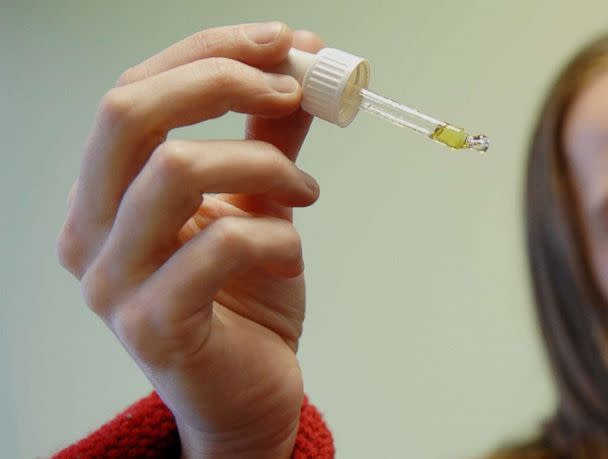3 complementary natural remedies for the flu
With flu season in full swing, "Good Morning America" looked into some natural, and complementary, remedies for flu symptoms that may offer some relief if you or a family member has fallen ill this year.
Late last week, the U.S. Centers for Disease Control and Prevention announced that it believes the nation reached peak flu season, and that the disease was considered to be an epidemic based on its medical impact, as hospitalizations across the country soared.
ABC News' chief medical correspondent Dr. Jennifer Ashton appeared live on "GMA" today to break down how to use three well-researched, complementary natural remedies for flu symptoms.
Getting a flu vaccine, however, still remains the best protection for you and your family against the flu, according to Ashton. She also recommends talking to your pediatrician before trying any of these remedies on children.
In addition, peer-reviewed, evidence-based data currently does not recommend any complementary natural remedies as a first line protection against, or as a treatment for, the flu, according to Ashton. Ashton also said it is important to note that natural does not always mean safe when it comes to medical treatments.
1. Oil of oregano

Oregano oil, also known as P73, has been shown in small lab studies to have antiviral, antibacterial and anti-inflammatory properties.
To use oil of oregano, simply drop three to 20 drops of it into a glass of water four times a day, swish the concoction around in your mouth, and then swallow.
2. Olive leaf capsules
In a 2010 study published in the medical journal Scientia Pharmaceutica, this extract was described as having antiviral properties to the respiratory viruses R.S.V. and parainfluenza, although it has not yet been proven to be effective against influenza.
Studies about its effect on treating influenza, however, are currently being conducted, mainly looking at olive leaf's major ingredient, oleuropein.
3. Black elderberry extract
Black elderberry extract, which is available in tea, liquid and capsule form, is thought to work by blocking the flu proteins called hemagglutinin, according to Ashton.
No comments:
Post a Comment